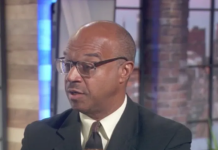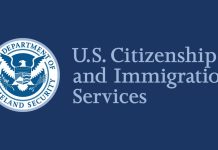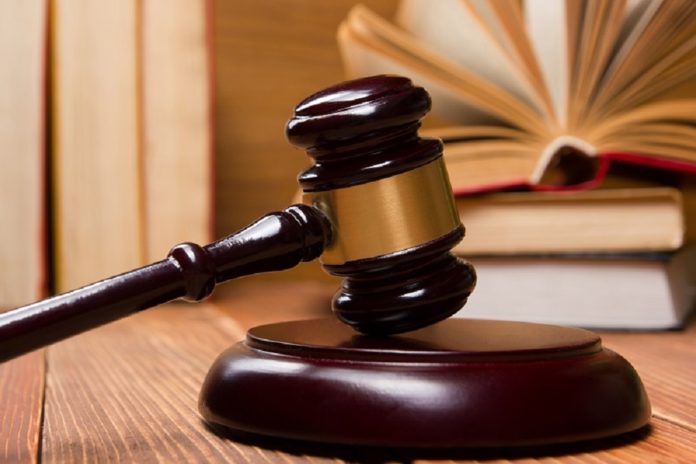A screening panel on Tuesday recommended two district judges and a lawyer in private practice to Gov. Laura Kelly to fill a vacancy on the Kansas Supreme Court.
After five rounds of voting, the Supreme Court Nominating Commission recommended Douglas County District Judge Amy Hanley, Johnson County District Judge Christopher Jayaram and Leawood attorney Larkin Walsh to the governor.
The three candidates were recommended from a field of 15 candidates who sought to fill the seat of Supreme Court Justice Evelyn Wilson, who is retiring after she was diagnosed with Lou Gehrig’s disease.
The three candidates survived five rounds of balloting, including one round to break a tie between Jayaram and Johnson County District Judge Robert Wonnell of Olathe.
Hanley, Jayaram and Walsh led all three rounds of balloting until the fourth round, when Jayaram was locked in a tie with Wonnell for the third and final name to be recommended to the governor. Jayaram edged Wonnell 5-4 in the tie-breaking vote.

Hanley has been a district judge in Douglas County since 2016. She earned a law degree from Drake University and a bachelor’s in political science from Kansas State University.
She previously worked as an assistant attorney general from 2009 to 2016 when Republican Derek Schmidt was attorney general and led that office’s criminal prosecution section.
She also worked as the first assistant Saline County attorney for almost seven years. And she served as a special assistant U.S. attorney.
She also was an assistant county attorney for Saline County from 2002 to 2009.
During her hearing before the nominating commission Monday, Hanley emphasized the importance of legal precedent in judicial decision making.
“I believe strongly in precedent. I believe in the rule of law,” Hanley told the commission.”
“I believe that precedent guides our decision and that judges should follow the law.
“I look at my judicial philosophy as one of pragmatism. I am the type of judge who wants to consider the practical implications of the decisions that I make because the system works better. We don’t want the system to not work well.
“Precedent factors into that because it’s a guiding principle of the law for lawyers to adhere to and for courts.”

Jayaram was named as a district judge in Johnson County in 2021 by the governor.
He is a 1997 graduate of the Northwestern School of Law at Lewis and Clark College in Portland, Oregon, had been an attorney at Horn Aylward & Bandy in Kansas City, Missouri.
He specialized in business and commercial litigation, health care law, product liability litigation and trucking litigation.
A 1993 graduate of the University of Kansas with a bachelor’s in environmental science, Jayaram worked for the Environmental Protection Agency out of school and later as a law clerk in the trial division of the Oregon Department of Justice.
He later worked for the Portland law firm of Smith, Freed, Heald & Chock before moving to Kansas City.
He has presided over the legal challenge to state abortion restrictions.
In 2023, he agreed to temporarily block the state’s 24-hour waiting period for abortions as well as a new law passed in 2023 requiring physicians to notify women that their drug-induced abortion can be reversed.
The case had been set to go to trial on June 23 but is now expected to be delayed until after the governor makes her appointment to the Supreme Court.
During his hearing Monday, Jayaram said “consistency” played a key part in his philosophy for interpreting the constitution.
“Generally speaking, I think my philosophy in terms of interpreting documents, whether they’re statutes or whether it’s the constitution, it is important to maintain consistency,” Jayaram told the panel.
“Stare decisis means something. I think that’s important for a judge on the Supreme Court. There needs to be some pragmatic review of issues as they come up,” he said.
“Generally speaking, I think that you need to review the text from a pragmatic standpoint while still giving fidelity to the actual words that are in the constitution.
“My philosophy just as a judge generally would be to try to be pragmatic in terms of solutions and outcomes depending on the facts and circumstances and depending on what you’re interpreting.”

Larkin Walsh, who finished second in the final round of balloting Tuesday, is senior counsel at the Kansas City firm Stueve Siegel Hanson.
She previously worked as a research attorney for former state Supreme Court Justice Carol Beier and as a law clerk to U.S. District Judge Carlos Murgia.
She has a bachelor’s from South Methodist University and a law degree from the University of Kansas.
Walsh “champions the rights of workers, consumers, and survivors of forced labor, trafficking, and sexual abuse,” according to a profile on her law firm’s website.
“She’s on the cutting edge of judicial interpretation of forced labor claims under the Trafficking Victims Protection Act; prosecuting collective, class, and mass-action Fair Labor Standards Act and state wage and hour claims in federal district courts nationwide…”
During her hearing Tuesday morning, Walsh said she didn’t have a particular philosophy for interpreting the constitution.
“I do view the members of the court as the last resort safeguard of the guarantees that are set forth in that document and that they are protectors and interpreters of those rights that we the people set out for ourselves,” Walsh told the panel.
“I suppose the philosophy is one of approaching that with a great deal of respect, approaching case law, interpreting the constitution with a great deal of respect.
“I don’t think I have a particular judicial philosophy if you’re thinking about like textualism.
“I think the exercise of restraint is important. I think closely reasoned decisions are important when you’re dealing with constitutional issues,” she said.
Here is how the complete voting went round by round. Ballots cast by each member of the nominating commission were made public on Wednesday.
Round 1
(Top six advance)
Amy Hanley 9
Larkin Walsh 8
Christopher Jayaram 7
Kristen Wheeler 6
Robert Wonnell 6
Carl Folsom III 6
Cheryl Rios 4
Tony Rupp 2
Meryl Carver-Allmond 1
Krystal Vokins 1
Laura Johnson-McNish 1
Randall Hodgkinson 0
Brian Mizer 0
Brant Laue 0
Kathleen Lynch 0
Round 2
(Top five advance)
Hanley 8
Jayaram 8
Walsh 8
Wonnell 7
Wheeler 6
Folsom 3
Round 3
(Top four advance)
Walsh 9
Hanley 8
Jayaram 7
Wonnell 6
Wheeler 3
Round 4
(Top three advance)
Hanley 8
Walsh 7
Jayaram 5
Wonnell 5
Round 5
(Jayaram/Wonnell tie breaker)
Jayaram 5
Wonnell 4













